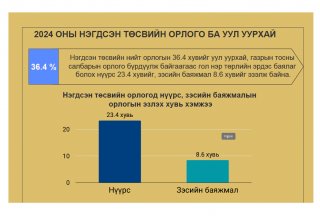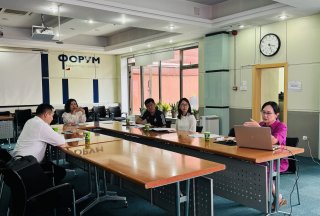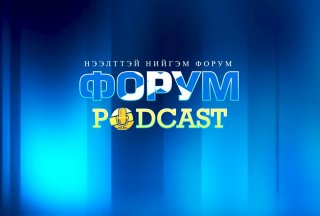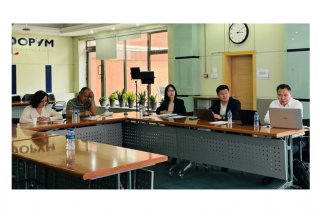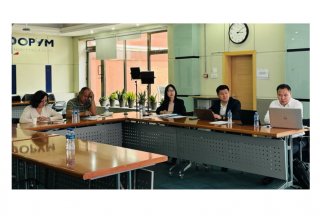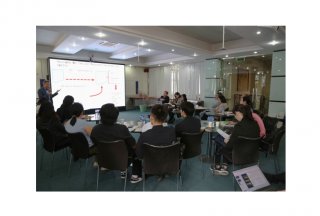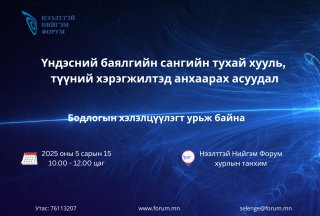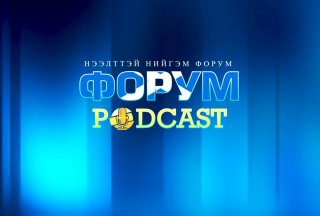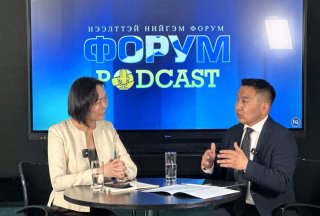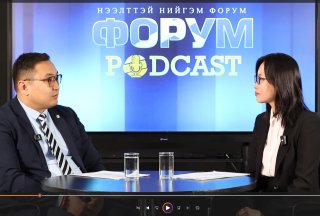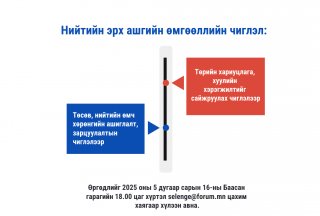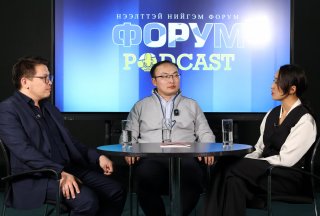“Institutions and Public Policy” төслийн багшлах ур чадварын бүсийн энэ оны сургалт
2006 оны 6–р сарын 26-аас 7-р сарын 7-ны өдрүүдэд Улаанбаатар хотноо болно.
Дээд Боловсролыг Дэмжих Хөтөлбөр, Нээлттэй Нийгэм Хүрээлэн, Эдийн Засгийн Эрдэм Шинжилгээний Сургууль, Монгол Улсын Их Сургууль, Бодлого Судлалын Ассоциац болон ТББ-уудын санхүүгийн дэмжлэгтэйгээр 3-н жилийн хугацаанд хэрэгжих уг төсөл Монгол, Оросын Холбооны Улс, Киргизстан, БНХАУ-аас сонгон шалгаруулж авсан их, дээд сургуулийн 25 залуу багш нар оролцно.
Announcement for the Regional Seminar for Excellence in Teaching (ReSET) project “Institutions and Public Policy”
26 June- 7 July, 2006, Ulaanbaatar, Mongolia
With the financial support from Higher Education Support Program, Open Society Institute, the School of Economic Studies, the National University of Mongolia and Economic Policy Research Association, non-profit, research NGO are hosting 3-year teaching and research project on “Institutions and Public Policy”.
The program includes lectures, discussions, preparation of research papers, and workshops with leading scholars in the field of institutional economics. The project will select 25 young academics teaching at the universities and higher education institutions in Mongolia, Russia, Kazakhstan, Kyrgyzstan, and China. All participants are anticipated to participate in all activities for the whole duration of the project.
The project aims at filling the and implementation and uncovering market (private), legal, regulatory and political institutions knowledge gap in the importance of institutions in developing markets, enhancing economic growth, and successful policymaking for successful transition and sustainable development in the former socialist economies.
The thematic focus of the first-year activities is “Institutions for Markets and Economic Growth”, for the second year is “Key Governance Institutions” and for third year is “Social Institutions, Institutional Choice and Institutional Change”
Each year, the program will consist of a summer contact session and inter-session activities. The project will use several methodologies in conducting the planned activities. The summer session will use two different teaching methodologies. Morning sessions will be in the form of lectures where the resource faculty explains the main concepts and theories under the topic. Afternoon sessions will be conducted in the form of guided discussions, where both the resource faculty and participants exchange their views on the subject matter and provide empirical evidence and historical examples relevant to the subject. The resource faculty will also provide give advice on the teaching methodology and on how to incorporate the subject matter into the curriculum.
The first summer session will be organized on June 26 – July 7, 2006, in Ulaanbaatar, Mongolia. The inter-session activities will include two stages. At the first stage, participants from the selected region will prepare a brief research paper that analyzes a specific institution in the context of their own economies and culture. The resource faculty will provide guidance and support throughout the research via email and other means of communication. Then the resource faculty and project staff will visit the home departments of the selected region and conduct a small contact session with the participants from the region. The participants will have a chance to present their research papers and discuss them with the resource faculty and each other. The first year inter-session activities are planned to take place in Kazakhstan, tentatively in January-February, 2007
The resource faculty for the first year include:
- Prof. Peter Murrell, Chair, Economics Department, College of Behavioral and Social Sciences, the University of Maryland, College Park, MD, USA
- Prof. Francisco Rivera-Batiz, Teachers College and SIPA, Columbia University, New York, NY, USA
- Prof. Rustem Nureev, Department of Economics, Higher School of Economics, Moscow, Russian Federation
- Ms. Narantuya Chuluunbat, PhD Candidate, School of Public Policy, the University of Maryland, College Park, MD, USA
Detailed outline of topics to be covered during the summer session:
Day 1: The development of economic thought 1970-present and the rise in importance of institutions
- New theoretical problems identified and new theoretical methods developed
- New Institutional Economics (NIE) as a new paradigm
- The elements of the NIE and the contrasts to older theories
- Institutions vs. Organizations – definitions and examples
- Diversity of institutions and organizations – internal and external institutions, formal and informal, public and private institutions
Day 2: Why institutions matter? – overview of arguments
- How do institutions support markets? General principles and specific examples
- How do institutions support growth and poverty reduction? General principles and specific examples
- Evidence linking institutions to economic performance
- Evidence on growth and determinants of institutions
- Crucial methodological concepts used in interpreting the evidence
- Sources of information on institutions
Day 3: Varieties of theory and applications: Transaction cost economics and enforcing agreements
- Transaction costs theory: intellectual developments, applications, results
- How are agreements enforced, the variety of institutions, informal and formal, and the variety of mechanisms from the law to the family, from repeated games to blind trust
- a review of the relevant empirical literature
Day 4: Formal contract theory, the property rights approach, and other theories of organization and contracting
- Basic concepts of contractual obligations
- moral hazard, examples of formal contracts, predictions and evidence
- adverse selection and market augmenting institutions
- the property rights theory of the firm, models and predictions
Day 5: The legal system, economic analysis of the legal system, and empirical evidence on legal institutions
- The crucial areas of the law for economics: property, contract, and torts
- Law and economics: principles and applications to the three areas
- Review of empirical evidence on legal systems and their relation to economic performance
Day 6: An institutional analysis of economic organizations
- The firm as an economic organization
- Issues of agency, ownership and corporate governance
- Private versus public: The economics of privatization
- Corporate social responsibility: What Should firms maximize?
Day 7: An institutional analysis of financial markets
- Regulation and supervision of the financial system
- Banking crisis prevention and resolution
- How to enhance efficiency and manage risk in the financial sector
- Micro-credit, savings and credit unions, and other institutional arrangements in the financial sector
Day 8: The informal economy
- Measuring the informal sector
- Institutional underpinnings of the informal economy
- The economics of tax avoidance, smuggling, money laundering and other informal activities
- Institutional solutions to reduce the size of the informal economy
Day 9: Institutions Across Borders
- International and regional institutional collaboration and integration
- Customs Unions and commercial trade arrangements
- Institutional underpinnings of the World Trade Organization
- The economics of the IMF, the World Bank and international organizations
- International monetary arrangements and institutions
Day 10: The main policy issues in building institutions that support markets
- What is an effective institution?
- Identifying institutional gaps
- Building institutions that support markets: what is important?
- The political economy of institutional change
- Experiences of developing and transition economies in building institutions
Selection of participants
Participants, both international and domestic, will be selected through an open competition on the basis of their academic background, their academic goals and English language knowledge. Director of the School of Economic Studies, Ch. Khashchuluun (PhD in Economics), program co-directors Ch. Narantuya and B.Otgontugs will select the participants.
Eligibility criteria
- Currently full-time faculty at a higher education institution in the target region, at least one year of teaching experience and part-time faculty who also deal with policy issues will be eligible.
- The applicants are expected to have at least a Master's degree in economics, sociology, public policy or relevant fields with a strong background in quantitative methods and economics.
- Applicants should have good command of English, as the language of instruction is English.
- Applicants should express their commitment to remain teaching at the home university for at least 2-3 years after the project completion.
Application materials
Those who wish to apply for the training seminar should send their
- Curriculum Vitae
- An official transcript (academic records) from BA and onwards
- An essay on why the applicant wishes to enroll into the program and his/her future academic plans (no more than 500 words)
- A letter of reference from the Head of the Department
- Some proof of English proficiency will be necessary. Results of standard English proficiency tests (e.g., TOEFL or IELTS) will be preferable, but other proof may be also accepted (e.g., a sample of written work in English).
- Applications should be accompanied by a cover letter, indicating the applicant's full contact details (including e-mail address, fax, telephone number which will be the main means of communication during the selection process)
Mailing address:
Economic Policy Research Association
Post Box-875
Ulaanbaatar-46
Mongolia
Note: The application should reach EPRA by 10May, 2006.
Deadline of application
10 May, 2006
The candidates will be notified of the outcome of their application by the end of the May, 2006.
For the details, please contact
Narantuya Chuluunbat ([email protected])
Otgontugs Banzragch ([email protected]) for further inquiries.



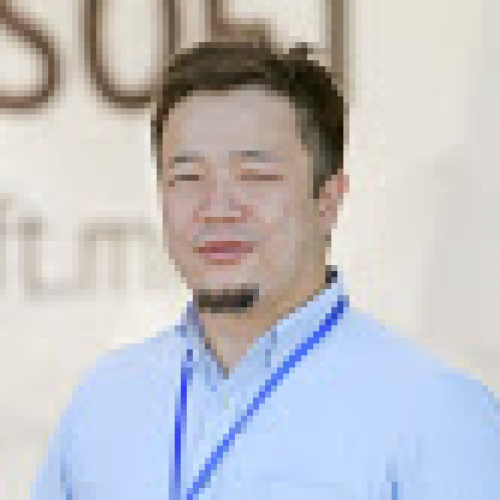 Naranchuluun
Naranchuluun 